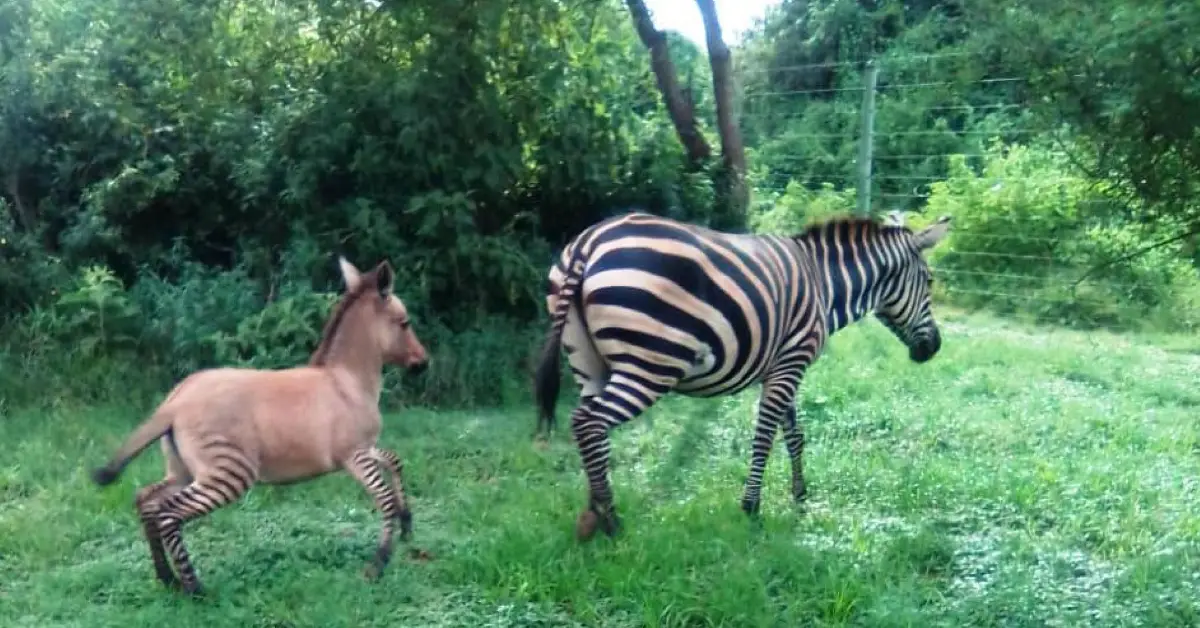A couple of snaps showing a pretty unusual baby zebra have taken the social media by surprise. The reason? Well the baby itself, who’s an extremely unusual crossbreeding of a zebra and a donkey, also known as a ‘zonkey.’ An extremely cute one, by the way.
The lovely news came through a Facebook post made by the Sheldrick Wildlife Trust – an organisation that rescues and rehabilitates animals in Kenya. The post immediately went viral. “Working with wildlife, one learns to expect the unexpected,” the rescue wrote. “Even the most seemingly straightforward story can eventually reveal its true stripes and end up surprising us all,” CNN reports.

Since a zebra’s pregnancy last around 12 months, it was pretty easy for the staff at the Sheldrick Wildlife Trust to explain the cute incident. It happened in May last year. Back then a stray zebra somehow ‘escaped’ from the Tsavo East National Park and joined a local woman’s cattle herd. The Trust group was eventually called to help the zebra with the rehabilitation. It was transferred to the Kenze Anti-Poaching Team’s base in Chyulu National Park, where it recently spotted with her baby zonkey.

“Earlier this year, our fence maintenance team caught a glimpse of the zebra with a tiny foal by her side,” the group wrote. “At first, we thought that it had just been wallowing in the mud bath, but then the truth dawned on us: Our wayward zebra had given birth to a zonkey!” Since shared, the post gained thousands of reaction with many people showing their enthusiasm regarding the rare sight.
Even the group explained that a zonkey is a “highly unusual hybrid,” a couple of years ago another zonkey was born. Only that time it happened on a farm in the UK. Back then, Baby Zippy how they named it was only the second zonkey ever born in the Uk.

According to the the Sheldrick Wildlife Trust “the zonkey combines the sturdy body of its donkey sire and the striped legs of its zebra mother, which makes for a striking creature. While it should otherwise lead a normal life, zonkeys are mules, meaning that it will be unable to successfully breed once it reaches maturity.”

